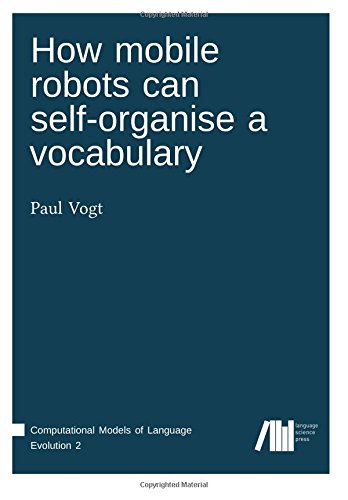
How Mobile Robots Can Self-organise a Vocabulary
by Paul Vogt
Publisher: Language Science Press 2015
ISBN/ASIN: 3946234011
ISBN-13: 9783946234012
Number of pages: 286
Description:
This book presents a series of experiments in which two robots try to solve the symbol grounding problem. The experiments are based on the language game paradigm, and involve real mobile robots that are able to develop a grounded lexicon about the objects that they can detect in their world.
Download or read it online for free here:
Download link
(2.6MB, PDF)
Similar books
 Formal Language Theory for Natural Language Processing
Formal Language Theory for Natural Language Processingby Shuly Wintner - ESSLLI
This text is a mild introduction to Formal Language Theory for students with little or no background in formal systems. The motivation is Natural Language Processing, and the presentation is geared towards NLP applications, with extensive examples.
(10820 views)
 Language, Proof and Logic
Language, Proof and Logicby Jon Barwise, John Etchemendy - Center for the Study of Language
The book covers the boolean connectives, formal proof techniques, quantifiers, basic set theory, induction, proofs of soundness and completeness for propositional and predicate logic, and an accessible sketch of Godel's first incompleteness theorem.
(20514 views)
 Natural Language Processing for Prolog Programmers
Natural Language Processing for Prolog Programmersby Michael A. Covington - Prentice-Hall
Designed to bridge the gap for those who know Prolog but have no background in linguistics, this book concentrates on turning theories into practical techniques. Coverage includes template and keyword systems, definite clause grammars, and more.
(10872 views)
 Computational Linguistics
Computational Linguisticsby Igor Boshakov, Alexander Gelbukh
The book focuses on the basic set of ideas and facts from the fundamental science necessary for the creation of intelligent language processing tools, without going deeply into the details of specific algorithms or toy systems.
(22359 views)